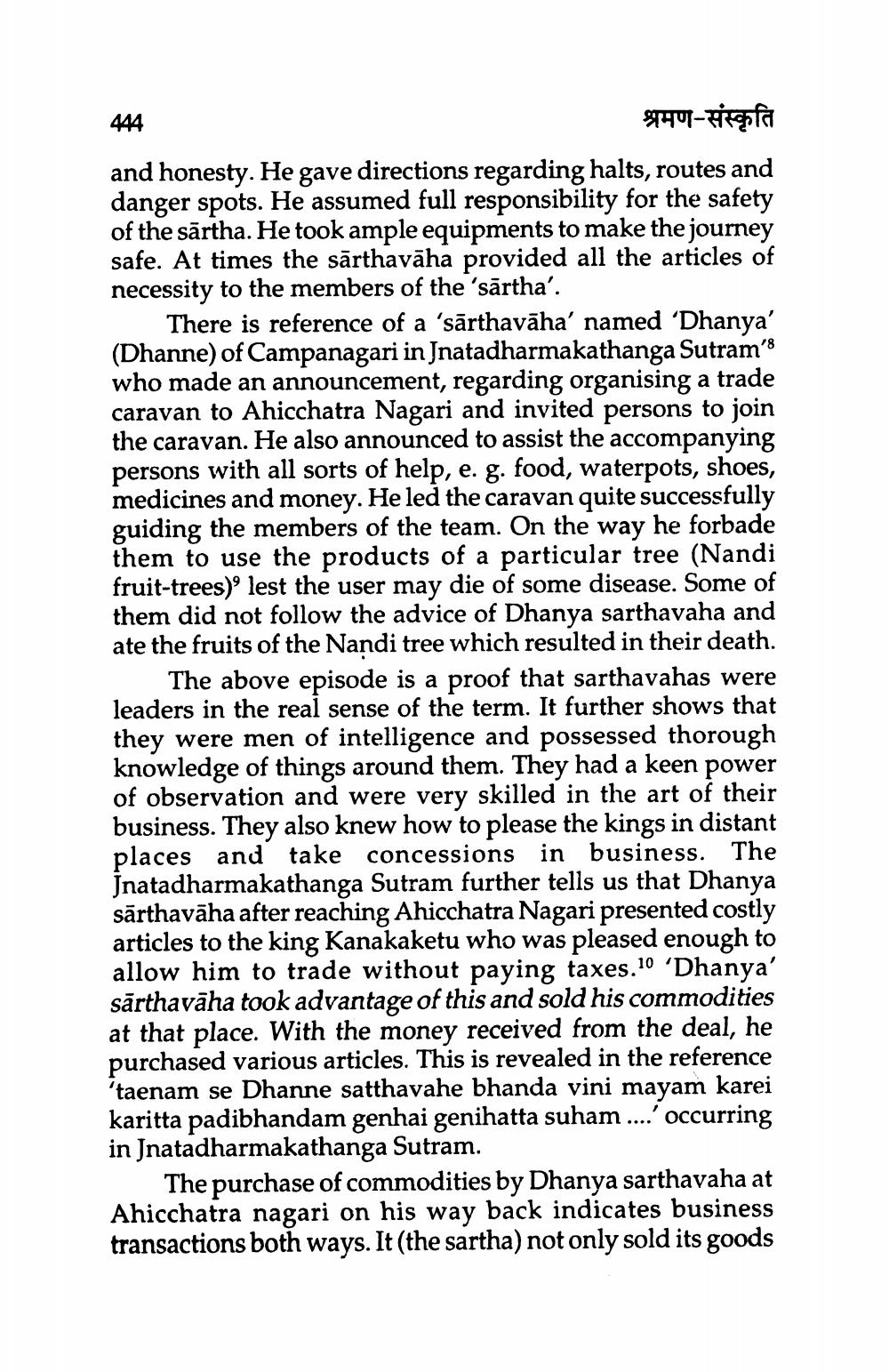________________
444
श्रमण-संस्कृति and honesty. He gave directions regarding halts, routes and danger spots. He assumed full responsibility for the safety of the sārtha. He took ample equipments to make the journey safe. At times the sārthavāha provided all the articles of necessity to the members of the 'sārtha'.
There is reference of a 'sārthavāha' named 'Dhanya' (Dhanne) of Campanagari in Jnatadharmakathanga Sutram': who made an announcement, regarding organising a trade caravan to Ahicchatra Nagari and invited persons to join the caravan. He also announced to assist the accompanying persons with all sorts of help, e. g. food, waterpots, shoes, medicines and money. He led the caravan quite successfully guiding the members of the team. On the way he forbade them to use the products of a particular tree (Nandi fruit-trees) lest the user may die of some disease. Some of them did not follow the advice of Dhanya sarthavaha and ate the fruits of the Nandi tree which resulted in their death.
The above episode is a proof that sarthavahas were leaders in the real sense of the term. It further shows that they were men of intelligence and possessed thorough knowledge of things around them. They had a keen power of observation and were very skilled in the art of their business. They also knew how to please the kings in distant places and take concessions in business. The Jnatadharmakathanga Sutram further tells us that Dhanya sārthavāha after reaching Ahicchatra Nagari presented costly articles to the king Kanakaketu who was pleased enough to allow him to trade without paying taxes. 10 'Dhanya' sārthavāha took advantage of this and sold his commodities at that place. With the money received from the deal, he purchased various articles. This is revealed in the reference 'taenam se Dhanne satthavahe bhanda vini mayam karei karitta padibhandam genhai genihatta suham ....' occurring in Jnatadharmakathanga Sutram.
The purchase of commodities by Dhanya sarthavaha at Ahicchatra nagari on his way back indicates business transactions both ways. It (the sartha) not only sold its goods




